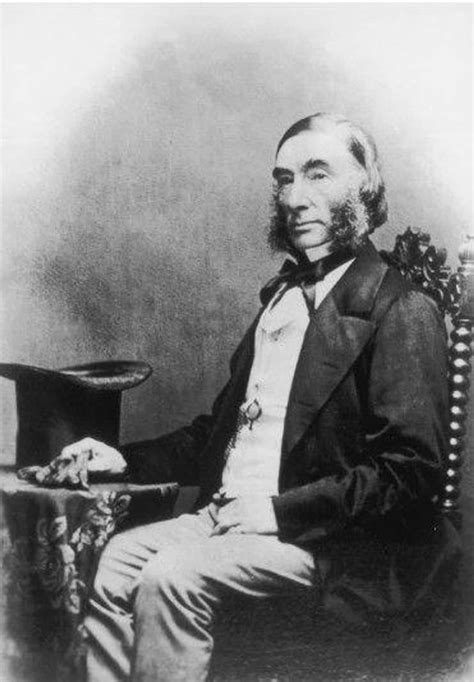A Quote by Aristotle
If then nature makes nothing without some end in view, nothing to no purpose, it must be that nature has made all of them for the sake of man.
Related Quotes
In the biblical worldview, the purpose of all creation is to benefit man. This anthropocentric view of nature, and indeed of the whole universe, is completely at odds with the current secular idealization of nature. This secular view posits that nature has its own intrinsic meaning and purpose, independent of man.
During the course of our life we now and then enjoy some pleasures so inviting, and have some encounters of so tender a nature, that though they are forbidden, it is but natural to wish that they were at least allowable. Nothing can be more delightful, except it be to abandon them for virtue's sake.
We must never put our dreams of success as God's purpose for us; His purpose may be exactly the opposite. His purpose is that I depend on HIM and in HIS power NOW. His end is the process. It is the process, not the end, which is glorifying to God....His purpose is for this minute, not for something in the future. We have nothing to do with the 'afterwards' of obedience. If we have a further end in view, we do not pay sufficient attention to the immediate present; if we realize that obedience is the end, then each moment as it comes is precious.
Naturalism is the view that the physical world is a self-contained system that works by blind, unbroken natural laws. Naturalism doesn't come right out and say there's nothing beyond nature. Rather, it says that nothing beyond nature could have any conceivable relevance to what happens in nature. Naturalism's answer to theism is not atheism but benign neglect. People are welcome to believe in God, though not a God who makes a difference in the natural order.
Nature is man's inorganic body -- that is to say, nature insofar as it is not the human body. Man lives from nature -- i.e., nature is his body -- and he must maintain a continuing dialogue with it is he is not to die. To say that man's physical and mental life is linked to nature simply means that nature is linked to itself, for man is a part of nature.
A man with a half volition goes backwards and forwards, and makes no way on the smoothest road; a man with a whole volition advances on the roughest, and will reach his purpose, if there be even a little worthiness in it. The man without a purpose is like a ship without a rudder - a waif, a nothing, a no man. Have a purpose in life and having it, throw such strength of mind and muscle into your work as God has given you.
In nature nothing remains constant. Everything is in a perpetual state of transformation, motion, and change. However, we discover that nothing simply surges up out of nothing without having antecedents that existed before. Likewise, nothing ever disappears without a trace, in the sense that it gives rise to absolutely nothing existing in later times.
And is an ending always bad? it asked. Must not all things, even worlds, someday end?"There is no need to hasten that end," Vin said. "No reason to force it."All things are subject to their own nature, Vin, Ruin said, seeming to flow around her. She could feel its touch upon her - wet and delicate, like mist. You cannot blame me for being what I am. Without me, nothing would end. Nothing could end. And therefore, nothing could grow. I am life. Would you fight life itself?






































